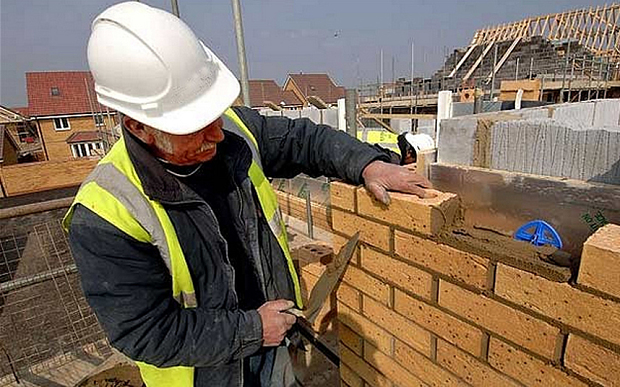
The ICE's ‘State of the Nation: Devolution’ report focuses on infrastructure as the key driver in rebalancing the economy but cites the quality of people’s living environments as a priority.
In a departure from the sector specific focus of previous reports, this year’s report looks at the impact of the government’s devolution agenda on the UK’s core infrastructure sectors: energy, flood risk management, transport, waste and water.
Launching the report, ICE President Sir John Armitt commented on Birmingham’s position as the historic centre of the industrial revolution, and noted its magnificent engineering heritage. He re-iterated ICE’s support for the Government’s goals of devolution - rebalancing the UK economy and driving local growth and extolled the virtue of infrastructure’s many potential benefits. He said that infrastructure must continue to be at the heart of the devolution agenda.
He also went on to thank the report’s Steering Group and his President’s Apprentices who contributed to its creation.
Following Sir John’s introduction, Adrian Coy, ICE Vice President and ‘State of the Nation: Devolution’ Steering Group Chair, then gave a summary of its recommendations to launch attendees. Also at the launch was Simon Ridley, Director General Decentralisation and Growth, Department for Communities and Local Government who provided an update on the Government’s progress on English devolution as well as his response to the report. Cllr Bob Sleigh, Chair of the Shadow Board of the West Midlands Combined Authority also gave his reaction to the report.
The report summarised that devolution of infrastructure policy has many potential benefits. Decisions can be based on an understanding of local needs, integration of services is easier to deliver on a local scale and securing vital public support for projects more achievable when it is the same community that benefits.
It concluded that placing infrastructure improvements at the heart of the devolution agenda could significantly boost local growth, environmental sustainability and quality of life - and with the right investment, frameworks and skills Combined Authorities can realise these full benefits.
Ahead of the launch, Adrian Coy, who is a Local Authorities Strategic Director with AECOM, re-iterated the important impact that investment in infrastructure can have for regions but said that its role in rebalancing the economy should not just be limited to the financial benefits: “We would also like to see more rounded devolution proposals.
"Rebalancing the economy should not only be thought of in financial terms. Enriching people’s lives is not just about increasing their income but also the quality of their living environments. More integrated proposals, setting out how they will also achieve environmental and social goals, will deliver broader benefits to society.”
ICE’s ten recommendations:
- All future devolution proposals should demonstrate how they will improve quality of life and environmental sustainability in addition to driving economic growth
- Authorities seeking a devolution deal should demonstrate a clear model for leadership and accountability; however models to achieve this should reflect each area’s unique identity
- Restrictions stopping combined authorities from accessing flexible private finance streams must be lifted if they are to deliver and maintain transformative infrastructure
- Future devolution deals must include funding for digital infrastructure so smart technologies which improve services for the public and the environment can be developed
- Infrastructure strategies should be developed for emerging economic areas in England setting out needs, to provide a framework for decision-making
- Similar approaches to identify strategic needs should be developed for London, Northern Ireland, Wales and Scotland
- Infrastructure strategies must have resilience at their heart – considering the interdependent nature of each areas networks and mitigating the knock-on failure which can occur during extreme weather, affecting local businesses and economies
- Regional pipelines setting out confirmed infrastructure projects should be developed, enabling government, authorities, industry and academia to invest in the right training in the local area
- Combined authorities should be given responsibility for the skills development of those aged 16-19 - in addition to those aged 19 plus - to create a more joined up approach
- Government should provide pre-submission advice - to ensure high quality devolution proposals that deliver effective outcomes for the country.
The report drew its evidence from a wide range of resources including regional workshops and focus groups, stakeholder interviews and a public opinion survey. The expertise of ICE’s knowledge panels has also been drawn upon to arrive at the report’s recommendations.
Richard Threlfall, KPMG UK Head of Infrastructure and Chair of the ICE Northern Powerhouse Steering Group said: “The creation of the Northern Powerhouse is a political balancing act. It requires the Government, one of the world’s most centrally-managed economies, to give up power to the North. And it requires the city and county authorities of the North to give up powers to a new regional tier of government.
"Everyone knows this, but the idea of regional government remains so anathema that it is rarely voiced. So I am delighted that the ICE has articulated that challenge so clearly in their State of the Nation: Devolution report.
“All the ingredients for a successful Northern Powerhouse are provided in the recommendations. We need Transport for the North (TfN) to be established with the power to develop, fund and implement a regional transport strategy, to deliver agreed social and economic outcomes for the region. TfN should be given clear leadership authority and accountability – taking account of the views of its constituent local authorities, but not beholden to them. It should be able to draw up pipelines of projects, and drive investment in the skills needed to deliver them.
"In short it should have both the constitutional and financial independence to act in the best interests of One North and through its transport infrastructure investment programme drive the creation of a booming single economic region.”




















